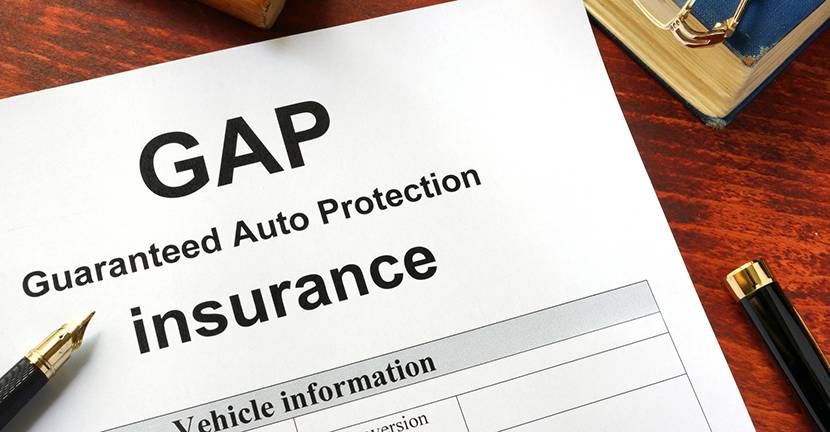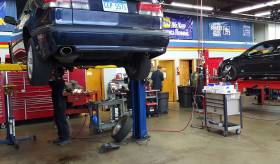What Should You Know About Gap Insurance?

When a person buys a vehicle, it immediately starts depreciating in value. This means that when people get financing for cars and other vehicles, the amount of money that they own the vehicle is often more than what the vehicle is worth. The insurance coverage pays for the current value of the vehicle, not the purchasing value, if the vehicle is undrivable or damaged past its current value. Guaranteed Auto Protection was offered for the first time in the 1980s to offset this with an insurance policy. Guaranteed Auto Protection is now mostly referred to as Gap Insurance.
Depending on the car crash, a vehicle may end up being deemed a total loss. When this happens, your auto insurance company will pay for the actual cash value of the vehicle. Many people in the 1980s find themselves owing more on the car than what it is worth, essentially having to pay for the difference out-of-pocket. Many financing companies now require that a person has gap insurance in order to better protect both you and themselves from financial loss.
What Is Gap Insurance?
Gap insurance is a policy where the insurance company will pay for the difference in what is owed to the finance company and the actual cash value of the automobile. This can be thousands of dollars. If you do not have gap insurance and have to pay the finance company the difference, instead of your insurance company doing it, it can quickly empty your wallet and leave you financially strapped.
Gap insurance will cover total losses to a vehicle if theft, vandalism, flooding, tornadoes, hurricanes, accidents, fire, or any other qualifying event renders it unable to be repaired, or not worth it to be repaired. Gap insurance coverage covers any loss that would usually be covered by a comprehensive or collision insurance policy. In some cases, this type of policy will even cover an insurance deductible. If this is the case, the deductible will not be refunded back to the vehicle owner and is instead applied to the amount of the policyholder's unpaid loan balance. Since each insurance policy can cover different things, it is important for car owners to check the details of their policies so that they know precisely what is covered if a total loss situation occurs.
Not only that, but gap plan holders should also shop around for policies when possible. If certain features of a policy are more appealing to you, you may want to select that policy even if it is a little bit more money than some other policies. Just because the premium on a policy is less does not mean it is the best choice for you.
Why Do I Need Gap Insurance?
People need gap insurance in many cases simply to get a loan from a financing company. Many financing companies will not give loans to people who do not purchase this type of insurance coverage. This is because depreciation is not only a risk to the car owner themselves but also the financing company. If a person getting a loan cannot pay the financing company back what is owed, the financing company could take a loss or have to get involved in expensive legal processes that they would prefer not to.
In addition, people who are financing vehicles usually have other types of insurance requirements in their contracts as well. This includes both comprehensive coverage and collision coverage in many cases. Make sure to get enough insurance coverage, of each beneficial type, in order to best protect yourself financially. Be aware of whether your gap insurance policy covers the insurance deductible. If it does not, you will want to make sure that you have enough money to pay for your deductible if an emergency situation occurs. Not being able to do so can delay getting a replacement for your vehicle and increase overall hardship. Not being able to get to work efficiently and easily can have major effects on a person’s life.
People who purchase vehicles with little or no down payment can easily end up owing more on their car if it is totaled. Anytime an auto loan amount exceeds what a car is worth, it is advisable to get this type of insurance policy.
How Do Gap Insurance Refunds Work?
When a vehicle is paid off, the unearned premiums are refunded to the insured party. If a vehicle is financed for 48 months and is paid off after 38, 10 months' worth of premium charges are due back to the insured person. This is because gap coverage is paid for in advance. If you manage to find a policy where you are not paying in advance, you will not be owed a refund. Additionally, if you sell your vehicle, or refinance it, you will be owed a refund.
Can I Get A Refund If I Pay My Loan Off?
For gap insurance, you can get a refund if you pay your loan off. Gap insurance lasts for the life of the loan, which is sometimes not the full term.
How To Cancel Gap Insurance Coverage
It is also possible for you to cancel your gap insurance coverage if the amount of your loan that is owed is less than the value of the vehicle you are driving. For people who have financed their vehicle for a long term, gap insurance can be most helpful. You can find the best prices for car insurance, including the top rates for gap insurance, at Insurance US.




Add new comment